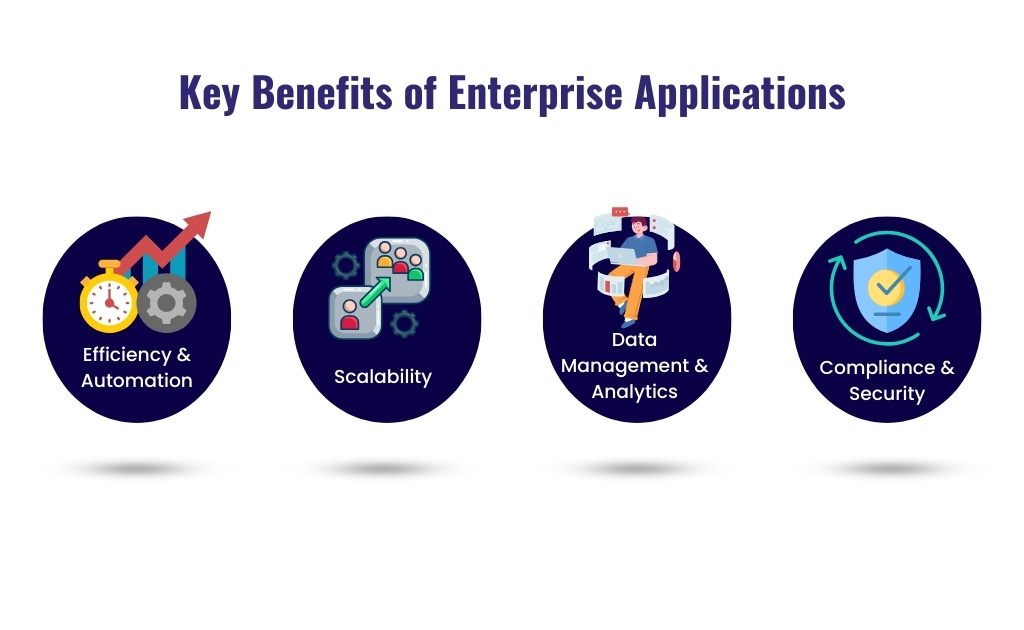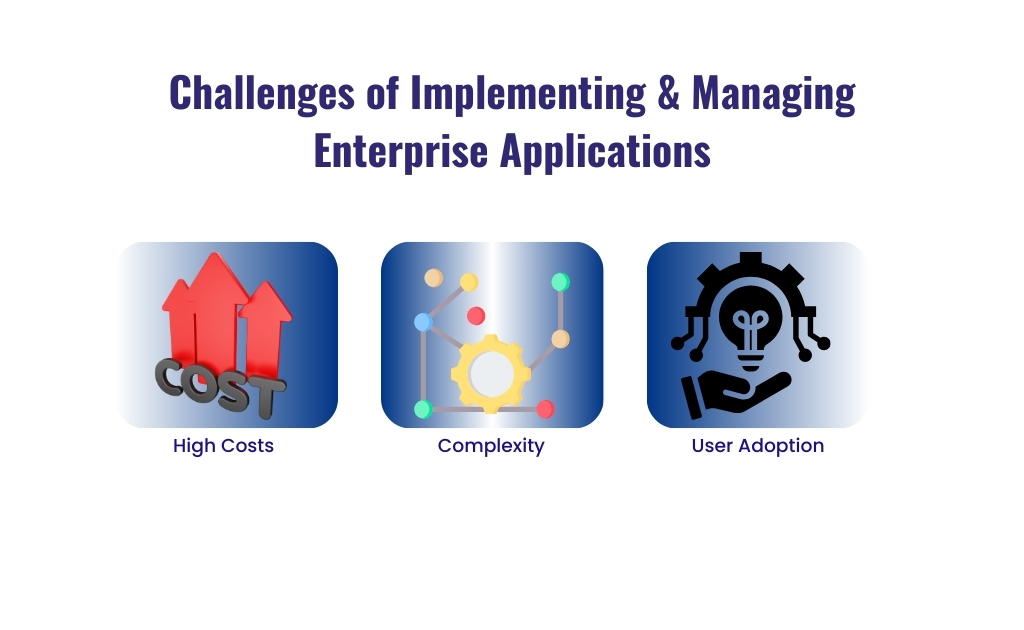In the contemporary business world, it is effortless to become engrossed in the latest and flashiest technologies and jargon. However, the unsung heroes who keep everything running smoothly are the enterprise applications that operate in the background, silently. These robust systems are the backbone of modern corporations, enabling them to operate efficiently, scale effectively, and stay ahead of the competition.
Let’s dive into what enterprise applications are, how they work, and why they’re absolutely critical to the success of businesses today.
What Exactly Are Enterprise Applications?
Enterprise applications are specialized software systems designed to meet the complex needs of large organizations. These are not your typical software solutions; they’re built to handle high volumes of data, support large-scale operations, and integrate seamlessly with other systems. You’ve likely heard of some of the most common types: Enterprise Resource Planning (ERP), Customer Relationship Management (CRM), Supply Chain Management (SCM), and Human Resource Management Systems (HRMS).
Each type serves a different purpose but with a common goal—streamlining and automating various business processes. While an ERP might help manage everything from finance to procurement, a CRM could be the key to nurturing customer relationships and driving sales. These systems differ from other software solutions in their ability to offer a holistic, integrated approach to managing a company’s entire ecosystem.
The Role of Enterprise Applications in Modern Corporations
Imagine trying to manage a global supply chain without a centralized system. Chaos, right? That’s where enterprise applications come in. These tools streamline processes across departments, ensuring that everyone—from the finance team to customer service—is on the same page.
For instance, when a customer places an order, the CRM automatically updates the order status, which in turn triggers the ERP to adjust inventory levels, and the SCM ensures the timely delivery of products. This seamless integration is what allows companies to operate efficiently and maintain a competitive edge.
Take DBI360, for example—a platform that leverages enterprise applications to provide comprehensive cloud-based solutions for nutraceutical and health companies. By integrating various processes like data management, compliance, and supply chain operations, DBI360 enables businesses to focus on what they do best while the software handles the heavy lifting.
Key Benefits of Enterprise Applications
So, what makes these applications so indispensable? Let’s break down the key benefits:
- Efficiency and Automation: Enterprise applications automate repetitive tasks, reducing the likelihood of human error and freeing up employees to focus on more strategic activities. This automation ensures that processes are not only faster but also more reliable.
- Scalability: As a business grows, so do its needs. Enterprise applications are designed to scale alongside the company, allowing for seamless expansion without the headache of overhauling existing systems.
- Data Management and Analytics: In today’s data-driven world, having access to real-time information is crucial. Enterprise applications excel at collecting, storing, and analyzing vast amounts of data, transforming it into actionable insights that drive informed decision-making.
- Compliance and Security: With the increasing complexity of regulatory requirements, staying compliant can be a daunting task. Enterprise applications often come with built-in compliance features that help businesses adhere to industry regulations. Additionally, these systems are equipped with advanced security measures to protect sensitive information.

Challenges of Implementing and Managing Enterprise Applications
Of course, it’s not all smooth sailing. Implementing and managing enterprise applications comes with its own set of challenges:
- High Costs: The initial investment in enterprise applications can be significant, and ongoing maintenance can add up. However, the long-term benefits often outweigh these costs.
- Complexity: These systems are inherently complex and require specialized skills to implement and manage. This complexity can lead to integration issues, especially when trying to align new applications with existing systems.
- User Adoption: Getting employees on board with a new system is crucial for success. Comprehensive training and change management strategies are essential to ensure smooth adoption.

Real-World Examples of Enterprise Applications in Action
Let’s explore some examples of how advanced software solutions are driving success in the real world.
- A Manufacturing Company: By leveraging an ERP system, this company streamlined its supply chain management, reducing lead times and improving overall efficiency.
- A Global Retailer: Using a CRM system, the retailer enhanced customer engagement, resulting in increased sales and improved customer loyalty.
- A Financial Institution: An HRMS system allowed the institution to automate payroll and employee management, freeing up HR staff to focus on strategic initiatives.
The Future of Enterprise Applications
As technology continues to evolve, so too will enterprise applications. We’re already seeing the integration of AI and machine learning, which will enable these systems to offer even more sophisticated analytics and automation. The shift towards cloud-based applications is making these systems more accessible and easier to manage, while mobile accessibility and user-friendly interfaces are enhancing the user experience.
Looking ahead, enterprise applications will continue to be the silent workhorses of modern corporations, driving growth and innovation.
Conclusion
Enterprise applications may not always be in the spotlight, but their impact is undeniable. As the backbone of modern corporations, they ensure that operations run smoothly, data is managed effectively, and businesses can scale successfully. In a world where efficiency and innovation are key to staying competitive, investing in robust enterprise applications like those offered by DBI360 is more important than ever.
So, while they might be silent, these workhorses are far from invisible—they’re powering the success of businesses around the world.

